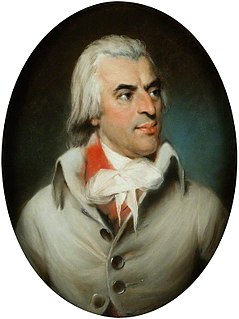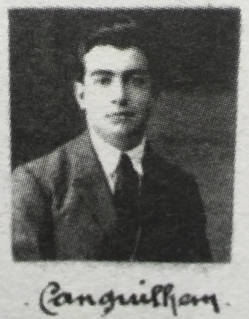A Quote by Arthur Young
The tendency of philosophers who know nothing of machinery is to talk of man as a mere mechanism, intending by this to imply that he is without purpose. This shows a lack of understanding of machines as well as of man.
Related Quotes
In truth, one cannot, it seems, oppose mechanism and finalism, one cannot oppose mechanism and anthropomorphism, for if the functioning of a machine is explained by relations of pure causality, the construction of a machine can be understood neither without purpose nor without man. A machine is made by man and for man, with a view toward certain ends to be obtained, in the form of effects to be produced.
A man with a half volition goes backwards and forwards, and makes no way on the smoothest road; a man with a whole volition advances on the roughest, and will reach his purpose, if there be even a little worthiness in it. The man without a purpose is like a ship without a rudder - a waif, a nothing, a no man. Have a purpose in life and having it, throw such strength of mind and muscle into your work as God has given you.
The development of artificial intelligence may well imply that man will relinquish his intellectual supremacy in favor of thinking machines. With oceans of time available for future innovation, there seems to be no reason why machines cannot achieve and surpass anything of which the human brain is capable.
Enlightenment is man's emergence from his self-imposed nonage. Nonage is the inability to use one's own understanding without another's guidance. This nonage is self-imposed if its cause lies not in lack of understanding but in indecision and lack of courage to use one's own mind without another's guidance. Dare to know!
Science ... has no consideration for ultimate purposes, any more than Nature has, but just as the latter occasionally achieves things of the greatest suitableness without intending to do so, so also true science, as the imitator of nature in ideas, will occasionally and in many ways further the usefulness and welfare of man,-but also without intending to do so.
The purpose of life for man is growth, just as the purpose of life for trees and plants is growth. Trees and plants grow automatically and along fixed lines; man can grow as he will. Trees and plants can only develop certain possibilities and characteristics; man can develop any power which is or has been shown by any person anywhere. Nothing that is possible in spirit is impossible in flesh and blood. Nothing that man can think is impossible. Nothing that man can imagine is impossible of realization.
Understanding a theory has, indeed, much in common with understanding a human personality. We may know or understand a man's system of dispositions pretty well; that is to say, we may be able to predict how he would act in a number of different situations. But since there are infinitely many possible situations, of infinite variety, a full understanding of a man's dispositions does not seem to be possible.


































